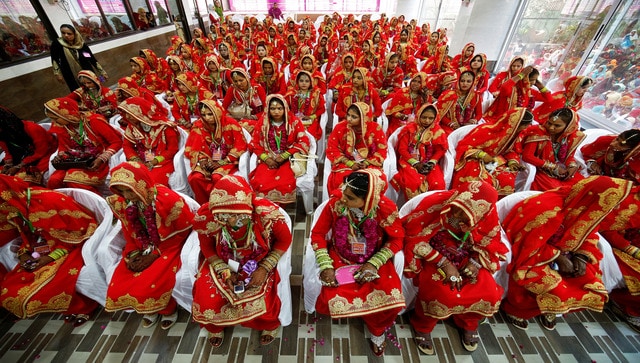The Uttarakhand government introduced the Uniform Civil Code Bill on Tuesday (6 February) in the Legislative Assembly. Tabled by Chief Minister Pushkar Singh Dhami, the legislation seeks to “govern and regulate the laws related to marriage and divorce, successions, live-in relationships, and matters related thereto.”
From regulating live-in relationships to defining the minimum marriageable age, the code formulates a common set of laws relating to personal matters for all communities in Uttarakhand.
This UCC Bill could set a precedent for other BJP-ruled states, including Gujarat and Assam, to bring a similar law.
What does the Uttarakhand UCC say about live-in relationships? What are other key takeaways from the Bill? Let’s take a closer look.
UCC Bill on live-in relationships
The Bill makes it “obligatory for partners to a live-in relationship within a State, whether they are resident of Uttarakhand or not, to submit a statement of live-in relationship under sub-section (1) of section 381 to the Registrar within whose jurisdiction they are so living.”
Moreover, any resident(s) of Uttarakhand “staying in a live-in relationship outside the territory of the state may submit a statement of live-in relationship under sub-section (1) of section 381 to the Registrar within whose jurisdiction such resident(s) ordinarily resides”.
People below the age of 21 who wish to live together will need parental consent.
Partners living together must submit a “statement of live-in relationship to the Registrar concerned…”. The registrar will then carry out a “summary inquiry” to ensure that the relationship does not come under any of the categories defined under Section 380, such as “where at least one of the persons is a minor”, “where at least one of the persons is married or is already in a live-in relationship”, if such relationships are “against public policy and morality”, and if the consent of one partner was obtained by “coercion, fraud, or misrepresentation (with regard to identity)”.
Children born out of live-in relationships “shall be a legitimate child of the couple”.
The Bill also states that the registration of live-in relationships must be done within one month of the couple living together. Failure to comply could lead to a jail term of up to three months or a fine of up to Rs 10,000 or both.
If anyone is found to have submitted a fraudulent statement, they can be punished with imprisonment of up to three months, or a fine of up to Rs 25,000, or both.
If the partners do not submit the statement despite receiving a notice, they can be jailed for up to six months, or asked to pay a fine of up to Rs 25,000, or both.
In case the district registrar rejects the registration, they must give their reasons in writing.
A woman “deserted by her live-in partner” can claim maintenance. However, the UCC draft did not define what constitutes “desertion”.
If both the partners, or either of them, terminate the live-in relationship, they have to notify the registrar through the submission of a “statement of termination of relationship”.
ALSO READ: Uniform Civil Code Bill tabled in Uttarakhand Assembly: How was the draft prepared?
Marriages, polygamy and more
The minimum age of marriage for women continues to be 18 and, for men, it is 21.
Section 4 of the UCC lays down five conditions for marriage. The Bill bans bigamy or polygamy as it states that “neither party has a spouse living at the time of the marriage”.
The legislation allows “custom” exception from the Hindu Marriage Act for married parties within the “degrees of prohibited relationships”, noted Indian Express.
The Bill also proposes equal inheritance rights for men and women.
Tribal communities have been exempted from the UCC draft. The Bill states: “Nothing contained in this code shall apply to the members of any Scheduled Tribes within the meaning of clause (25) of Article 366 read with Article 142 of the Constitution of India and the persons and group of persons whose customary rights are protected under Part XXI of the Constitution of India.”
With inputs from agencies
Link to article –
What does the Uttarakhand UCC Bill say about live-in relationships, marriages?





